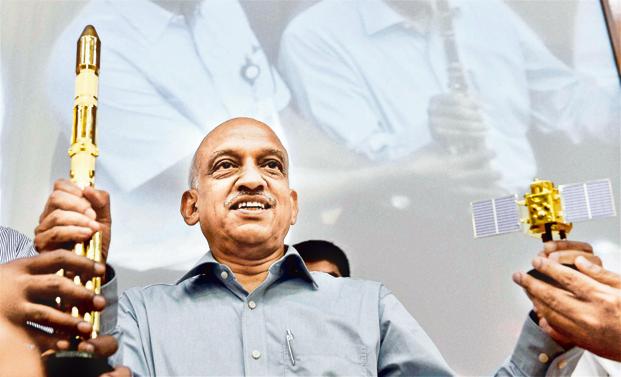
SOURCE: TNN
Former Isro chief AS Kiran Kumar said currently the world space economy was about 400 billion dollars, of which India’s share was a mere three per cent. “India’s share should increase between 10 and 15 per cent,” he said while addressing a lockdown lecture of the Nehru Science Centre on Wednesday.
Kumar, who headed Isro between January 2015 and January 2018, and who is still connected with it in an advisory capacity, said that for increasing India’s share in the world space economy the role of private players was very important.It is in this context that the decision of the government to give industries a major role in the Indian space arena was significant. “This will help India which has already developed several space capabilities and technologies to become a significant player in the global space economy,” he told viewers.He said that there were at present nine Indian start ups that are taking India’s space industry to the next level and Isro has awarded some of them contracts for example in the area of propulsion. Some of these were Exceed Space, Dhruva Space and Bellatrix. Over the years Isro has transferred 350 technologies to 225 industries.
“Space business was risky. But, if there is no risk there will no gain” he stated. For the human space flight programme, Gaganyaan, Isro has invited industries and the academia to participate. “The flight has been slightly delayed for a variety of reasons, but the work is on in full swing. It will be a continuos programme and will not stop with just one flight. The decision to have India’s own space station is a natural corollary to India’s human space flight project,” he added.
He admitted that Isro’s public outreach exercise was limited at the moment and he attributed this to monetary constraints and in the area of human resources. Coincidentally, for the first time two former ex Isro chiefs spoke to Mumbai science institutions on the same day: Kiran Kumar in the morning to the Nehru Science Centre, and K Radhakrishnan who headed the space agency between and November 2009 to December 2014, to the Tifr Alumni Association in the evening.
Radhakrishnan said of the $366 billion global space economy commercial ground equipment and space-based services accounted for 70 per cent.






